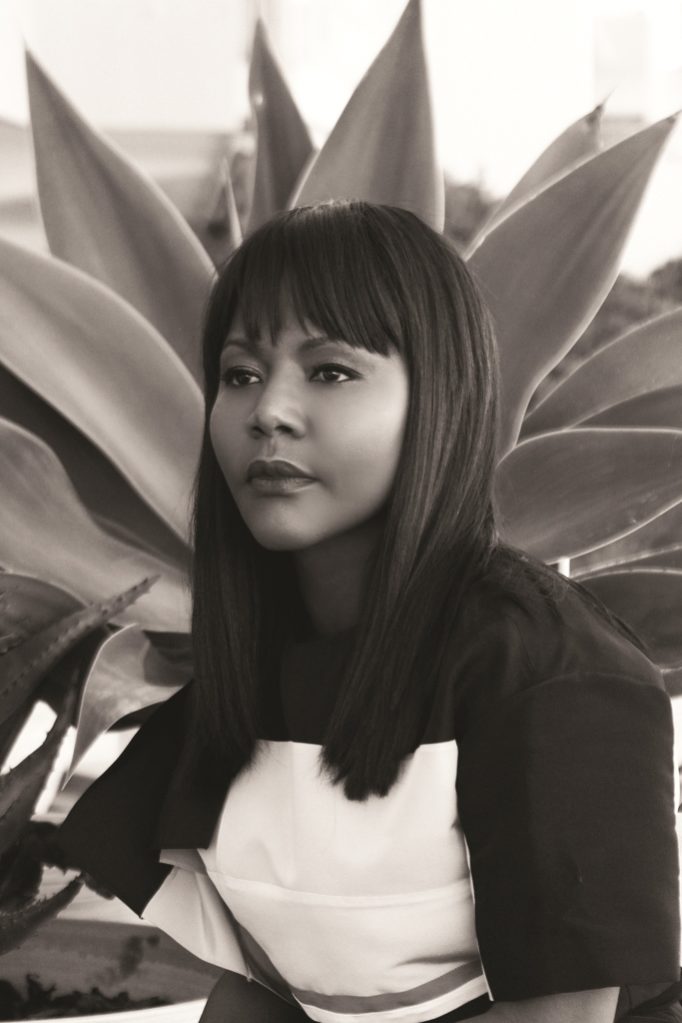There is a new avant-garde edifice in the heart of Lagos’ swanky Victoria Island. It is no mere edifice. Typically, it is where you would find Nigeria’s art, design and fashion fraternity converge under one roof.
You could call this edifice, a multi-level design gallery and retail haven named the ALARA concept store, a library of pan-African luxury.
Its founder Reni Folawiyo’s ambitions can be likened to the monumental edifice she has built. An art and design aficionado who worked as a lawyer for a decade, Folawiyo describes her store as a celebration of who we are as Africans today, a sign of our cultural awakening and a statement of where we are going as a continent.
It is clear Africa is developing a noteworthy appetite for luxury design.
When we meet at the store, we sit on contemporary carved wooden stools, with subtle Angolan Kizomba and Pasada music playing in the background. Folawiyo exudes a simple sophistication just like the surroundings we are in.
“I believe we need iconic platforms to project Africa and celebrate the different Africans doing great things all over the world,” she begins.
For this, she started from the bottom.
“I started to grow my passion by seeking to understand the creativity of the artists and designers on the ground. My association with them was important just for my own interest but it also began to grow into a curiosity for their functionality, growth and how they earned a living.”
Folawiyo left her career in law to chase her interests, one that saw her collaborating with young artistes in the design schools and the College of Arts and Technology in Lagos. She held weekend brainstorming sessions to help them monetize their creations.

“We had fashion designers, painters, sculptors and I thought to connect them to our world would be to create contemporary objects that would be useful to people in their everyday lives. That way, they were utilizing their creativity and for me as an entrepreneur, it was viable,” says Folawiyo.
From organic wooden seats to hand-embroidered cushions created by fashion designers, the functional items were presented at exhibitions for sale. A variety of materials were also showcased, including leather and indigenous raffia fiber.
With demand for more pieces, Folawiyo soon decided to set up her own studio.
“I looked at the numbers and gaps in the market and realized there is nobody doing contemporary doors and joinery… I wanted to keep it local and tool it to perfection so that, if anyone looked at the piece, would recognize that it is African but also very contemporary.”
This led to the launch of Folawiyo’s joinery and doors company, a one-stop shop for all interior design requirements. As she began to travel more on the continent, she began to have a better appreciation for traditional artisans and designers.
“I realized there were many people like me who were trying to use old skills to do contemporary pieces. I became curious and started to inform myself about them, to see how they got to where they were and what they were doing to operate.”
Folawiyo speaks about a lack of exposure and appreciation for Nigeria’s artistes and designers.
“It is difficult for the artistes to break through as there is an aesthetic that people relate to which is different from what contemporary artistes are doing and if with this space [ALARA], we can encourage people and support artistes to produce collections that can be put in stores, then that will be a great feat.”
She highlights the need for design schools, technological support and encouragement in preserving artisanship.
“It’s important to find a way to preserve what we are doing locally and elevate it. This brought me to a point where I felt I needed to celebrate what I had found. Africa has not been seen as sophisticated and I wanted to show people that this is not the case.”
At ALARA, Folawiyo currently stocks names such as Loza Maleombho, Jewel by Lisa, Tiffany Amber, Maki Oh and a host of others.
“I also decided that in fashion especially, it was important to put both African and international designers in the same space because I feel that in order for our designers to grow and be respected, we need to place them side by side with the best of the world,” she says.
And to Folawiyo, every creation she lays her hands on has a touching story.
“A woman weaving a basket tells a story of her life. Her final product may be aesthetically pleasing but it is stronger for me because of the story behind it.”
Art. Design. Fashion. Folawiyo is on to the next chapter of her African success story.
